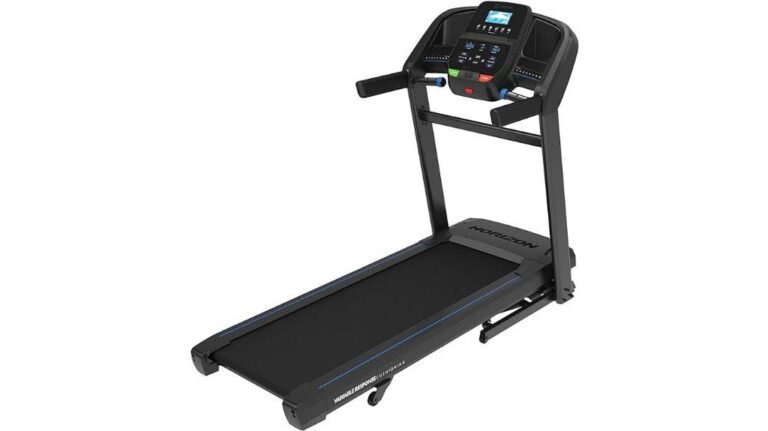Creating a Self-Care Routine Around Your Fitness Goals
Imagine your self-care routine as the compass guiding you towards your fitness aspirations. As you navigate the realm of wellness and exercise, it’s essential to intertwine self-care practices seamlessly with your goals.
By harmonizing your physical ambitions with mindful habits, you can cultivate a sustainable routine that nurtures both your body and mind. But how do you strike this delicate balance between pushing yourself and caring for yourself?
Explore the art of crafting a self-care routine tailored to your fitness journey, where every step you take is a step towards holistic well-being.
Key Takeaways
- Prioritize self-care to support fitness goals effectively and sustainably.
- Set realistic and achievable fitness goals with specific timelines.
- Incorporate mindfulness practices for overall well-being and fitness progress.
- Balance rest and recovery to optimize fitness results and prevent burnout.
Importance of Self-Care in Fitness
To achieve your fitness goals effectively and sustainably, prioritizing self-care is essential. Incorporating self-care practices into your fitness journey is crucial for long-term success. Think of self-care as the foundation upon which you build your health and wellness goals. It’s like giving your body the love and attention it deserves to perform at its best.
Self-care practices can range from getting enough sleep to fueling your body with nutritious foods and engaging in activities that bring you joy and reduce stress. Taking care of your mental and emotional well-being is just as important as physical exercise when it comes to reaching your fitness goals. Remember, self-care isn’t selfish; it’s necessary for your overall health and happiness.
As you progress on your fitness journey, make self-care a priority. Listen to your body, rest when needed, and don’t forget to celebrate your accomplishments along the way. By incorporating self-care practices into your routine, you’re setting yourself up for sustainable success on your fitness journey.
Setting Realistic Fitness Goals
When embarking on your fitness journey, it’s crucial to set realistic goals that you can achieve.
By defining achievable fitness goals, you’ll be able to create a roadmap that motivates you to stay on track.
Remember to consistently track your progress and be open to adjusting your goals as needed to ensure continued growth and success.
Define Achievable Fitness Goals
Setting realistic fitness goals is the first crucial step towards creating a successful self-care routine for your fitness journey. To define achievable fitness goals, consider the following strategies:
- Start Small: Begin with manageable goals to build confidence.
- Be Specific: Clearly outline what you want to achieve to stay focused.
- Set Deadlines: Establish realistic timelines for reaching each goal.
- Celebrate Milestones: Acknowledge and reward yourself for progress made.
Track Progress Consistently
Consistently monitoring your progress is key to maintaining motivation and staying on track with your fitness goals. By tracking your progress regularly, you can see how far you’ve come and where you still need to go. This not only provides a motivation boost but also helps you adjust your routine if needed to ensure you are making progress towards your goals. Consistency in progress tracking is crucial for goal achievement. Below is a table illustrating different methods you can use to track your progress effectively:
| Progress Tracking Methods | Frequency | Benefits |
|---|---|---|
| Keeping a Workout Journal | Daily | Reflect on achievements and areas for improvement |
| Using Fitness Apps | Weekly | Monitor trends and set new targets |
| Taking Progress Photos | Monthly | Visual representation of changes in your body |
Adjust Goals as Needed
To ensure you stay on the right track towards achieving your fitness goals, it’s essential to regularly reassess and adjust your targets as needed. Goal flexibility and progress evaluation are key components in this process. Here are some tips to help you effectively adapt your goals:
- Regularly assess your progress: Take time to evaluate how you’re advancing towards your fitness objectives.
- Be open to goal adjustment: Understand that circumstances may change, and it’s okay to modify your goals accordingly.
- Seek adaptation strategies: Look for new approaches or techniques to overcome obstacles and keep progressing.
- Celebrate small victories: Acknowledge and celebrate the milestones you achieve along the way to stay motivated and focused on your fitness journey.
Incorporating Mindfulness Practices
Hey there! Ready to enhance your fitness journey with mindfulness practices?
Engaging in mindful breathing techniques, starting a gratitude journaling practice, and adopting mindful eating habits can significantly boost your well-being and fitness progress.
Let’s explore how incorporating these practices can help you achieve your fitness goals and cultivate a healthier lifestyle.
Mindful Breathing Techniques
Incorporate mindfulness practices into your routine by starting with simple yet powerful mindful breathing techniques. Mindful breath awareness can significantly aid in stress relief and provide various breathwork benefits, such as promoting relaxation techniques.
To get started, try the following techniques:
- Box Breathing: Inhale for a count of four, hold for four, exhale for four, hold for four, and repeat.
- 4-7-8 Technique: Inhale for four seconds, hold for seven seconds, exhale for eight seconds.
- Mindful Belly Breathing: Focus on breathing deeply into your belly, feeling it rise and fall with each breath.
- Counted Breaths: Simply count your breaths, focusing on the sensation of each inhale and exhale.
These techniques can enhance your mindfulness practice and support your overall well-being.
Gratitude Journaling Practice
Enhance your gratitude journaling practice by infusing it with mindful techniques to deepen your sense of appreciation and mindfulness. Begin each journal entry with a moment of gratitude reflection, acknowledging the positive aspects of your day.
Write down specific things you’re thankful for, whether big or small. Consider incorporating daily affirmations into your practice to uplift and motivate yourself. Use phrases that resonate with you and align with your fitness goals.
By combining gratitude reflection and daily affirmations, you can cultivate a more positive mindset and increase your self-awareness. This practice can help you stay focused on your fitness journey and maintain a sense of balance and well-being.
Start your day with gratitude and affirmation to set a positive tone for what lies ahead.
Mindful Eating Habits
Deepen your mindfulness journey by applying mindful practices to your eating habits, fostering a healthier relationship with food, and enhancing your overall well-being.
When it comes to mindful eating habits, consider the following:
- Mindful meal planning: Take time to plan nutritious meals that align with your fitness goals.
- Portion control: Practice being aware of portion sizes to avoid overeating.
- Emotional eating awareness: Recognize triggers that lead to emotional eating and find alternative coping mechanisms.
- Self-reflection: Reflect on your relationship with food, identifying patterns and making positive changes for a balanced approach.
Balancing Rest and Recovery
Finding a balance between rest and recovery is crucial for achieving your fitness goals effectively and sustainably. To optimize your progress, incorporate smart recovery techniques and sleep strategies into your routine. Quality sleep is fundamental for muscle repair and overall well-being, so aim for 7-9 hours of restful sleep each night. Additionally, consider active rest days where you engage in light activities like walking, yoga, or gentle stretching to promote blood flow and aid in muscle recovery.
Mobility work is another key component of balancing rest and recovery. By focusing on flexibility and joint mobility, you can prevent injuries and enhance your overall performance. Incorporate dynamic stretches, foam rolling, or yoga into your regimen to improve your body’s range of motion and reduce muscle stiffness.
This dentist in Greenbelt also adds that visiting a doctor is an integral part of rest and recovery as it ensures that your health is properly monitored and managed. Regular check-ups can identify underlying health issues early, allowing for timely treatment and preventing complications that could hinder recovery. Additionally, doctors can provide personalized advice on nutrition, exercise, and other lifestyle factors that support healing and overall well-being. Medical guidance helps optimize rest periods, ensuring that recovery is effective and comprehensive, ultimately promoting long-term health and vitality.
Nourishing Your Body Properly
To fuel your fitness goals effectively and optimize your performance, it’s essential to focus on nourishing your body properly. Proper nutrition plays a vital role in supporting your workouts, aiding in recovery, and enhancing overall well-being.
Here are some tips to help you nourish your body for success:
- Meal Planning: Plan your meals ahead of time to ensure you’re fueling your body with the right nutrients at the right times. This can help you avoid unhealthy food choices when you’re in a rush.
- Hydration Tips: Stay hydrated throughout the day, especially before, during, and after your workouts. Water is essential for regulating body temperature, lubricating joints, and transporting nutrients.
- Balanced Diet: Aim for a balanced diet that includes a variety of fruits, vegetables, lean proteins, whole grains, and healthy fats. This will provide your body with the necessary nutrients for energy and recovery.
- Snack Smart: Choose nutrient-dense snacks like nuts, yogurt, or fruit to keep your energy levels stable between meals. Snacking smart can prevent overeating and maintain steady blood sugar levels.
Prioritizing Mental Health Support
Prioritize your mental health support by incorporating daily practices that nurture your emotional well-being and resilience. Taking care of your mental health is just as important as focusing on your physical well-being when striving to achieve your fitness goals. Remember to schedule regular mental health check-ins with yourself to assess how you are feeling and to address any concerns that may arise. Additionally, don’t hesitate to seek professional support if you feel overwhelmed or if you need guidance from a trained expert. Mental health professionals can provide valuable tools and strategies to help you manage stress, anxiety, or any other mental health challenges that may impact your fitness journey. By ensuring that your mental well-being is taken care of, you are setting a strong foundation for overall health and success in reaching your fitness goals.
| Practice | Description | Frequency |
|---|---|---|
| Gratitude Journaling | Write down things you are grateful for to boost positivity | Daily |
| Mindful Meditation | Engage in mindfulness exercises to enhance mental clarity | 3 times a week |
| Physical Activity | Regular exercise releases endorphins, improving mood | 5 times a week |
Building a Sustainable Routine
Building a sustainable routine requires consistency and adaptability to ensure long-term success in achieving your fitness goals. It’s important to find a balance that works for you, allowing for progress while also being mindful of your body’s needs. Here are some tips to help you build a routine that lasts:
- Consistent scheduling: Set aside specific times each week for your workouts. Treat these appointments with yourself as non-negotiable.
- Mindful movement: Listen to your body during exercise. Push yourself, but also know when to rest and recover to prevent burnout or injury.
- Variety is key: Keep your routine interesting by incorporating different types of exercises. This not only challenges your body but also keeps you engaged and motivated.
- Celebrate small victories: Recognize and celebrate the progress you make along the way. Whether it’s increasing the weight you lift or running an extra mile, every achievement is a step towards your ultimate goal.
Conclusion
Now that you have the tools to create a self-care routine around your fitness goals, are you ready to take the next step towards a healthier and happier you? Remember, self-care isn’t selfish, it’s necessary.
By prioritizing your well-being and finding balance in all aspects of your life, you can achieve your fitness goals while also nurturing your mind, body, and soul.
So, why wait? Start your self-care journey today and watch yourself thrive!







